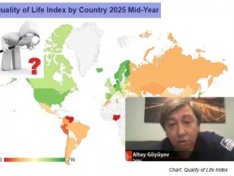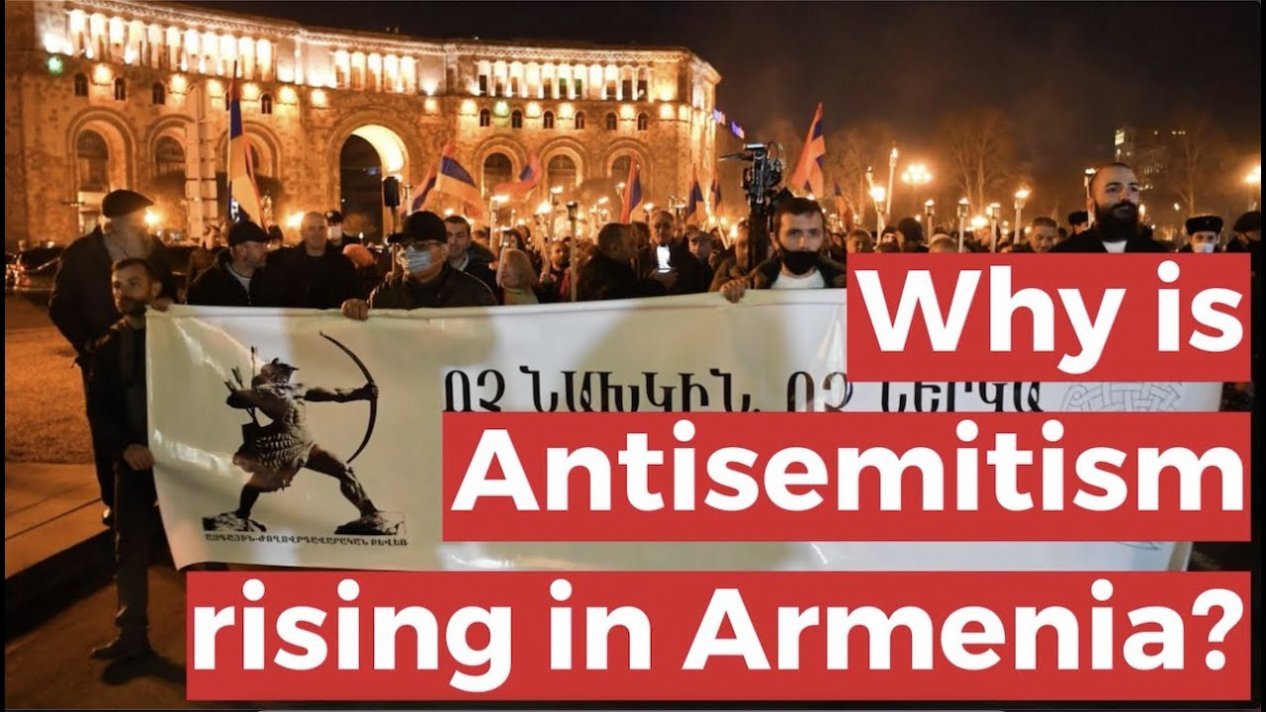
Lots of calls and speeches are made in Armenia on the basis of intolerance and hatred, and those who call for peace are considered traitors. The hatred among Armenians against other nationalities has been supported by the governments in this country for decades. In addition to Turkophobia and Azerbaijanophobia, there is also a serious presence of anti-Semitism in Armenia. Although almost a quarter of the 21st century has passed, people around the world have learned to respect each other, to take into account the opinions of others, but neo-Nazi and anti-Semitic tendencies still exist in one-nation country Armenia.
While there are strong relations between Israel and Azerbaijan, how can a Christian country like Armenia suffer from anti-Semitism and fail to establish ties with Israel?
Faktyoxla Lab. has investigated the origin of the anti-Semitic tendencies in Armenia.
In our research, it should be noted that since 1996, Rima Varzhapetyan-Feller, the President of the Jewish Community of Armenia, whose population currently does not exceed 1,000, mentioned that on the eve of April 24, 2003, in a demonstration organized by the youth branches of the Dashnaktsutyun Party, they burned the Turkish flag with the Star of David. Afterwards, Rima Varzhapetyan-Feller expressed her surprise that the pictures of the demonstrators shouting their anger at Turkey and Israel, which do not recognize the fact of the Armenian genocide by lighting torches that caught fire from the burning Turkish flag, were given in the headline of one of the Russian-language newspapers in Yerevan, and said that the Dashnaktsutyun party held a similar demonstration in 2002. Varzhapetyan, who said that he explained the issue to the deputy foreign minister of Armenia at the time, Ruben Shugaryan, emphasizes that in his reply letter, he mentioned the impossibility of seeing anti-Semitism in such events. But as we read what the president of the Jewish Community wrote, we see that even this letter is based on fraud.
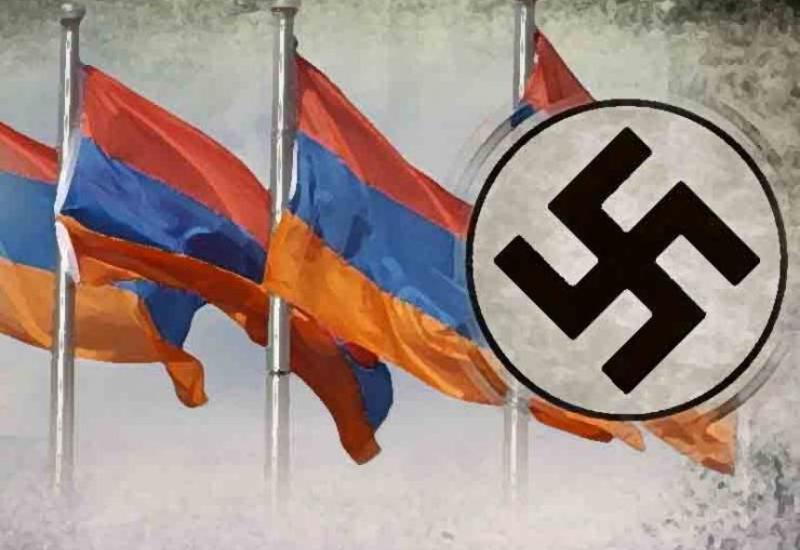
Moreover, in February 2002, a presentation of Roman Episkoposyan's book “National System”, published in Armenian and Russian, took place in the meeting hall of the Yerevan Writers' House. This book belonged to an author whose name is unknown to anyone in Armenia. In the book, Turks are mentioned as nation killers and Jews as "nation destroyers." The author falsely presented the Holocaust as the greatest falsification of the twentieth century.
The infiltration of anti-Semitic sentiments into Armenia is largely due to the emigration of Armenians to Russia in connection with a difficult economic situation. Children and youth who have never heard anything bad about Jews, returning to their homeland or coming on vacation, bring with them ideas of anti-Semitism that are not unique to the Armenian community. The Youth Party of Armenia, which joined the Prosperous Armenia Party in 2011, even distributed Nazi literature imported from the Russian Federation.
The Holocaust Memorial, located in the center of Yerevan, is one of the most important places that has had its share of Armenian barbarism. The monument consists of two stone slabs inscribed "Live and remember" in Armenian and Hebrew. A pomegranate flaunts between the plates - this fruit symbolizes the life and rebirth of two persecuted peoples.
The first solemn event was recorded in September 2004 - on the last day of the Jewish New Year. Later, unknown vandals painted a cross and the "evil" number 666 on the stone with white paint. In the following months, the plate was seriously damaged at least four times.
In 2010, a swastika was drawn with brown paint on the monument, so to speak, and the inscription “Death to the Jews” in Armenian was written on the back.
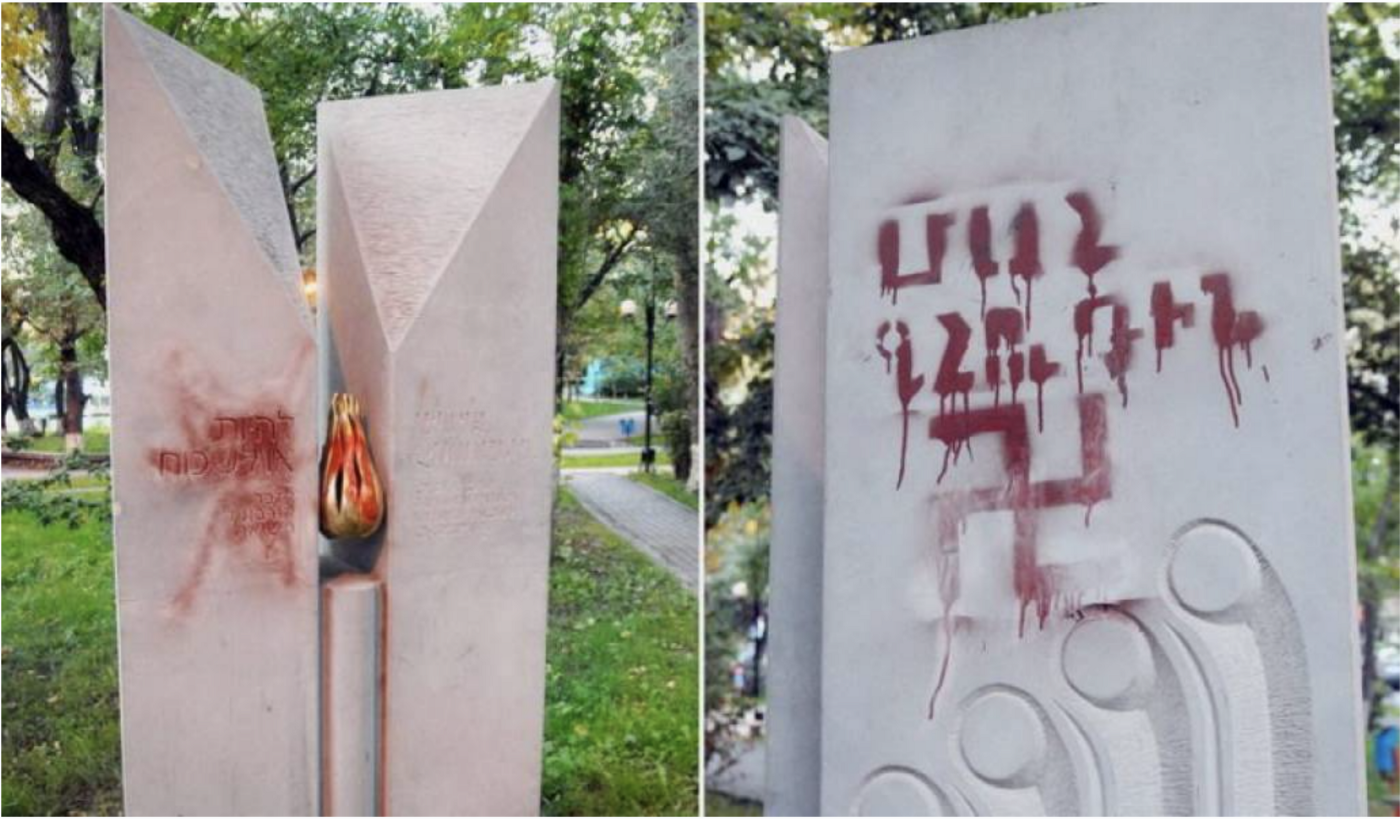
Armenian Chief Rabbi Gershon Burstein made the following statement about the act of vandalism after that incident: “The latest incident we are currently facing in Armenia is unprecedented. Its uniqueness lies in the fact that the monument itself is not entirely a Jewish monument. It is a memorial to the victims of both the Holocaust and the 1915 Armenian Genocide.”
Armenia suffered a crushing defeat in the Karabakh war in 2020, and Russia's famous Pravda newspaper announced that Pashinyan's government had initiated a dangerous process to incite anti-Semitic sentiments, which could get out of the control of its initiators.
In February 2021, the same monument was desecrated again. Tsovinar Kostanyan, head of the NGO International for Human Development, posted this information on Facebook, posting a photo of the monument.
Dedicated to the memory of the victims of the Holocaust, the plate was painted with red paint, with the inscription “Your name is blood” in English.
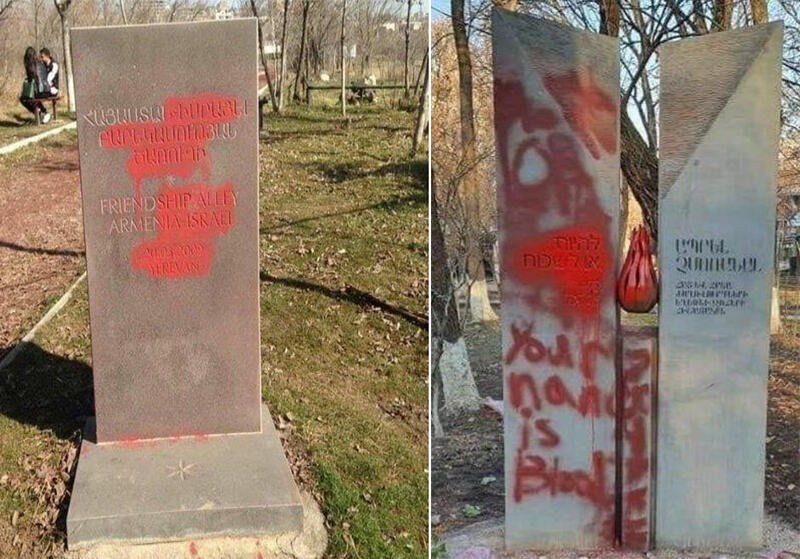
Moreover, it will suffice to look at the statistics to understand how widespread the hatred towards the representatives of the Jewish nation is in Armenia. A survey conducted by the Anti-Defamation League (ADL) in 2014 reveals that approximately 58% of Armenians live in anti-Semitism and similar prejudices. The figures show that Armenia is the second most anti-Semitic country in Europe and the third in the world, after the Middle East and North Africa.
In 2018, the American Pew Research Center (PRC) conducted a survey of the level of antisemitism in Central and Eastern Europe. As can be seen from the table below, the highest anti-Semitism is seen in the Republic of Armenia, which ranks first among 18 countries. You can guess: 32%(!) of the inhabitants of the mono-ethnic republic stated that they do not want to see Jews as citizens of their country.
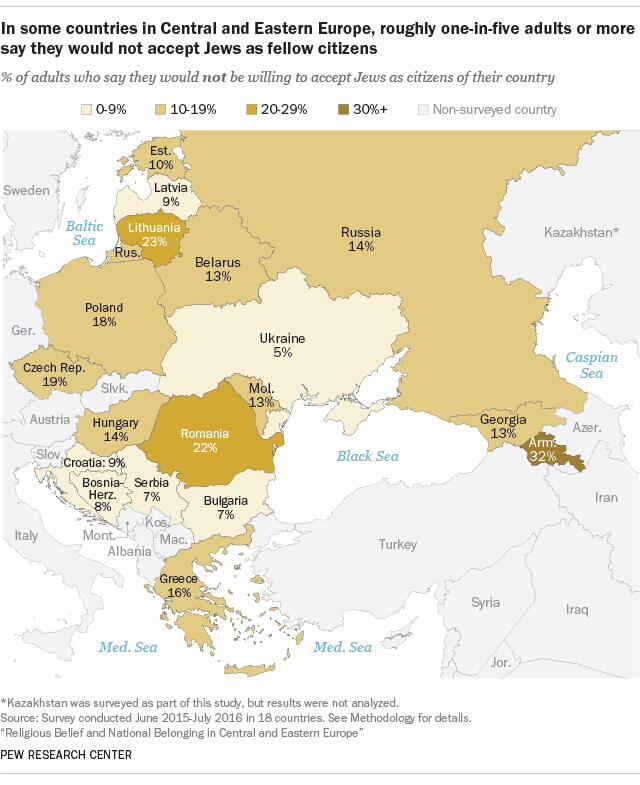
The situation is likely to worsen after the Second Karabakh War, as Israel is one of the countries from which Azerbaijan bought modern weapons to liberate its lands from Armenian occupation. The 2020 annual report of the Israeli Ministry of Diaspora highlighted a dangerous rise in anti-Semitism. Acts of vandalism, insults to the Jewish people, and Armenians' disrespect to Holocaust monuments and memorials are the most obvious examples.
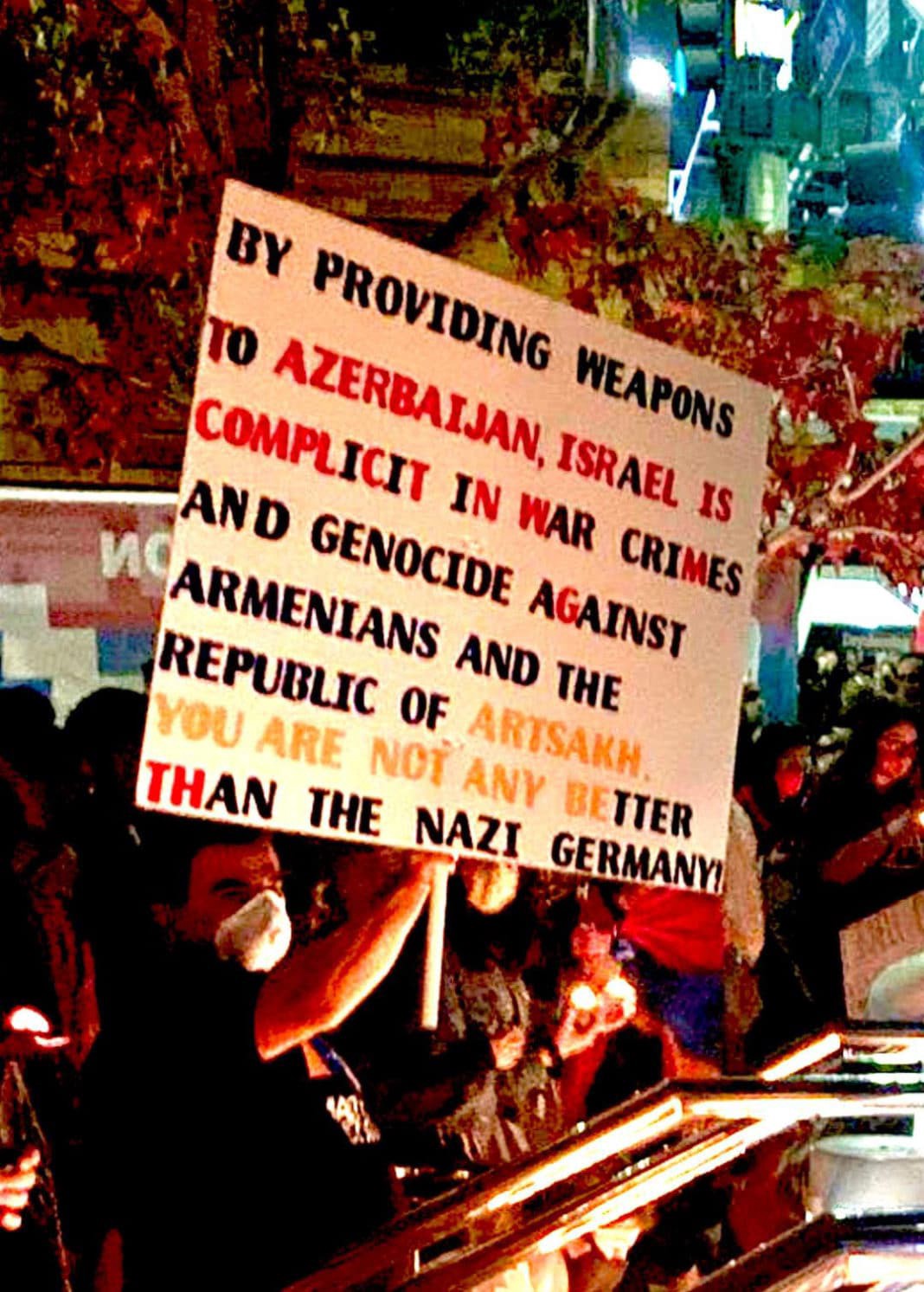
It should also be noted that places in the South Caucasus bearing the names of anti-Semitic and neo-Nazis are found only in Armenia. A person named Drastamat Kanayan, an activist of the armed terrorist organization "Dashnak" known by the nickname "Dro", accused of being complicit in the murder of 30,000 Jews. In addition, the fascist ideology called "Nzhdeism" is included in the curriculum of Armenian educational institutions.
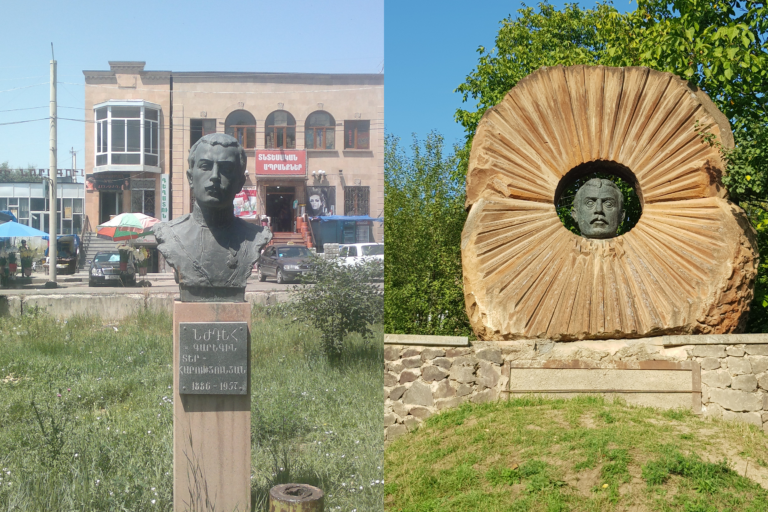
Nzhdeh's books are exhibited in Armenia, in festivals, in exhibitions, in "cultural activities." Armenians say "If there are such heroes, there will be books. Then the new generations will read these books and this will inspire their new success." Armenians also published the book "Nzhdeapatum." This is a collection of material about the life of a Nazi criminal, fragments of his works and thoughts. In this book, they even dared to call him a philosopher, highlighting the recent growing interest in Nzhdeh, particularly in the "ideological legacy he left behind."
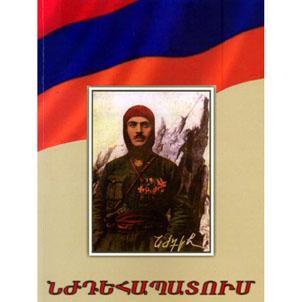
Moreover, Armenians have the courage to promote Nzhdeh, even in Russia, where they are very sensitive to the glorification of Nazism. For example, on January 28, 2022, a scandal broke out in the Russian Federation due to the biggest provocation of the Union of Armenians of Russia. The Armenian lobby decided to shoot a film about the fascist Garegin Nzhdeh, while there was a wide debate about the liberation of Auschwitz, the liberation of Leningrad from the German-Finnish blockade, the attempt to officially recognize the genocide of the peoples of the USSR. Moreover, this took place on the street of the Soviet Army, where the Union of Armenians of Russia is located.
As a result, today's Armenia has become the country where the most anti-Semitism calls are made in the world. While the world strives to live in peace, tranquility and stability, it is a fact that Armenia has anti-Semitic tendencies. In the light of this fact, it is clearly understood why this country has become a mononational state.



